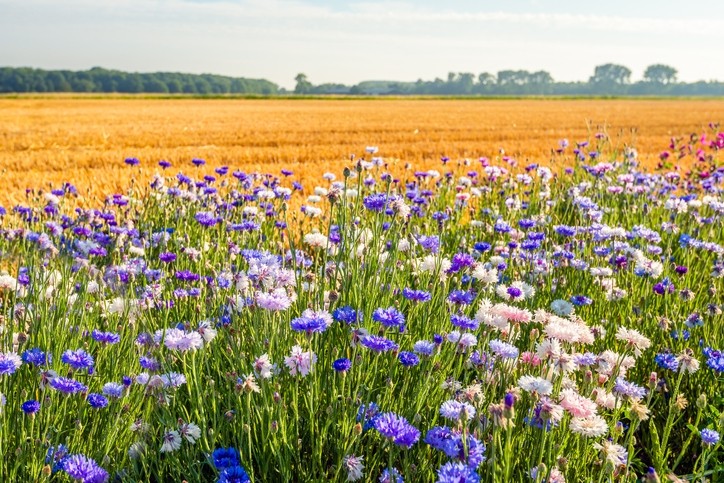Feed industry, farmers call for impact assessment of EU biodiversity, farm to fork targets

The EU Executive said the two strategies, released on Wednesday [May 20], are mutually reinforcing, bringing together nature, farmers, business and consumers for jointly working towards a competitively sustainable future.
“In line with the European Green Deal, they propose ambitious EU actions and commitments to halt biodiversity loss in Europe and worldwide and transform our food systems into global standards for competitive sustainability, the protection of human and planetary health, as well as the livelihoods of all actors in the food value chain,” wrote the EU Commission.
Central to the EU biodiversity Strategy for 2030 is a pledge to protect 30% of the EU’s land and sea by 2030 and to promote and support the same target globally.
FEFAC said it supports the EU Commission’s willingness to strengthen food security at both global and EU level and the resilience of EU agriculture and food systems in its communication on Farm-To-Fork (F2F) and biodiversity.
And the EU feed industry body said it fully agrees with the Commission’s analysis of the central role of the Common Agricultural Policy (CAP) as the key policy delivery mechanism to provide safe, sustainable and affordable food to EU Consumers.
Impact assessment, food sustainability
However, FEFAC outlined how it is “deeply concerned” about the potential adverse impact of some of the key policy orientations included in the F2F and biodiversity strategies, setting conflicting targets which may actually reduce the EU's food production capacity.
It stressed the importance of a thorough inception impact assessment, prior to any specific legislative measures, in line with better regulation practices. “We believe this approach to be crucial to ensure policy coherence at EU and national level, in particular regarding the EU's objective to raise the production and competitiveness of home-grown vegetable proteins.”
The Commission's F2F strategy, in a section on sustainable diets, outlines how reversing the rise in overweight and obesity rates across the EU by 2030 is critical and that moving to a more plant-based diet with less red and processed meat and with more fruits and vegetables will reduce not only risks of life-threatening diseases, but also the environmental impact of the food system.
FEFAC stresses that no food system can be sustainable without the production of farm animals, due to their essential role in transforming low value human inedible feed materials into high-value nutritious food via milk, meat and eggs to consumers. "At the same time farm animals provide highly valued organic fertilisers to arable crops, making them a key component of sustainable food systems based on the Circular Economy principles. The feed industry's role is to provide optimised animal nutrition, reduced nutrient losses, improved animal health and welfare and increasing environmental performance of animal production systems, via precision feeding systems and the adoption of new technologies."
'EU at risk of outsourcing environmental footprint'
European farmers and agri-cooperatives, reacting to the publication of the newly adopted strategies, echoed FEFAC’s call for a comprehensive independent inception impact assessment on the targets before any legislative action is taken.
Copa-Cogeca warned against endangering strategic EU interests in food security, agricultural competitiveness and farming income. The EU farming lobby said while the EU Commission has presented two highly ambitious strategies, their success will depend on the actors on the ground: farmers, forest owners and their cooperatives.
“The Commission’s aim to establish more protected areas will reduce the area used for agricultural production and forestry in the EU. In addition to the high potential rate of land abandonment and tougher restrictions on some of the areas that are already protected, the 10% exclusion of land from active use will have severe socio-economic and environmental consequences. It is likely that the EU will outsource its environmental footprint to third countries and put pressure on high biodiversity hotspots around the world.”
Copa-Cogeca also weighed in on the sustainable diets aspect of the F2F strageg, saying advocating a balanced diet and the consumption of healthy food from both animal and plant sources is essential.
"The European farming community supports any measure encouraging consumers to adopt a diet that ensures their good health. Therefore, any type of nutrition labelling and dietary guidelines should be based on sound science and avoid a simplistic approach, which can be misleading. In this regard, such initiatives should take into account the utmost importance of the vital nutritional value provided by agricultural products, including those of animal origin whose contribution to a healthy diet cannot be overlooked. Transparency, in particular on the origins of food, is also crucial."
The #Biodiversity strategy and the #FarmtoFork strategy are not about telling people what to do, but to give people what they deserve: more sustainable food, and better information to bolster their right to choose. #EUGreenDeal
— Frans Timmermans (@TimmermansEU) May 20, 2020
Wider reaction
Organic farming group, IFOAM EU, hailed both Commission strategies and the target to reach 25% organic land in Europe by 2030, as well as measures to boost the demand for organic products through promotion schemes and green public procurements.
EFFPA, the European Former Foodstuff Processors Association, welcomed the F2F targets: "Former foodstuff processing corresponds well with a range of the projected ambitions as regards sustainable food production systems, such as reduced environmental and climate footprint of the EU food system, increased circular business models, reduced food waste and the recovery of secondary raw materials."
Brussels based, International Platform of Insects for Food and Feed (IPIFF), also saluted the F2F strategy in particular. “Our association welcomes the launch of the F2F and believes that the objectives of this strategy will play an important role in the development of our sector – which in turn, could help in the transition towards more sustainable and resilient food systems,” said Antoine Hubert, IPIFF President.
Pesticides action group, PAN Europe, said the Commission publications bring the protection of biodiversity as well as of public and environmental health to the forefront of European food policy, and show a commitment to taking action to reduce chemical pesticide use.
The Commission’s publications also saw support from the Campaign for Nature, a partnership of the Wyss Campaign for Nature, National Geographic Society, and a growing coalition of more than 100 conservation organizations around the world that is calling on policymakers to commit to a science-driven, ambitious new deal for nature at the 15th meeting of the Conference of the Parties to the Convention on Biological Diversity in Kunming, China, in 2020.
“The strategy reflects key transformative characteristics required to effectively address the biodiversity crisis. We are happy to see the EC supporting and promoting protection of 30% of our land and seas by 2030,” said Georg Schwede, EU representative of that alliance.












